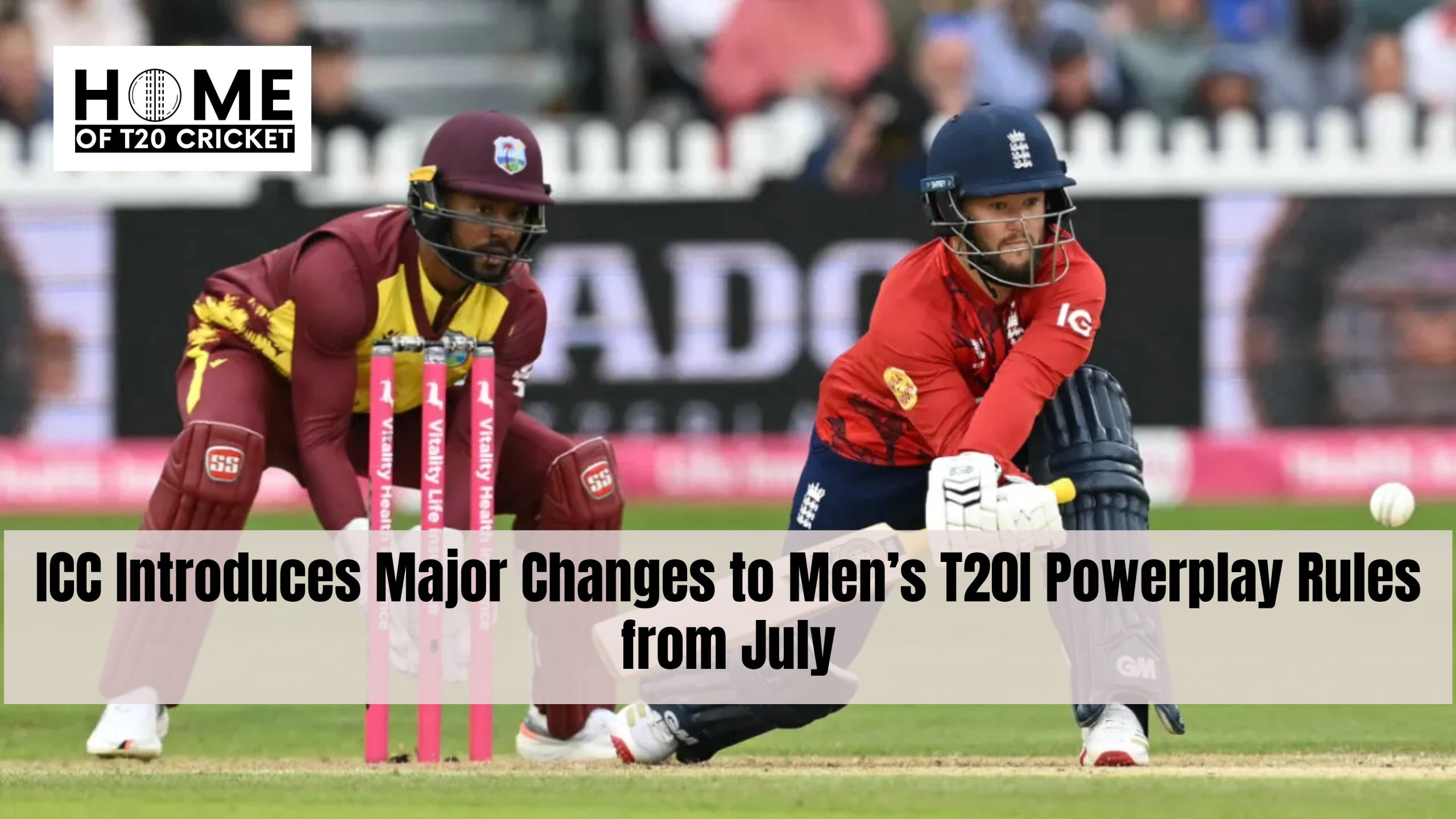The International Cricket Council (ICC) has announced a significant update to the playing conditions for men’s T20 internationals, focusing on the powerplay phase. The new T20I powerplay rules aim to bring greater precision and fairness to matches, especially in shortened games. This change will come into effect from July 2, alongside other adjustments across international cricket formats.
How Have the T20I Powerplay Rules Changed?
Traditionally, the powerplay in a 20-over innings lasts six full overs, during which only two fielders are allowed outside the 30-yard circle. When matches are shortened due to weather or other interruptions, the powerplay length is adjusted by rounding to the nearest over. However, this method often led to disproportionate powerplay lengths relative to the reduced innings, potentially affecting game balance.
Under the updated T20I powerplay rules, the powerplay duration will now be rounded to the nearest ball rather than the nearest over. For example, in an eight-over game, the powerplay will last for 2.2 overs (14 balls), and in a nine-over match, it will be 2.4 overs (16 balls). This ensures that the powerplay remains closer to 30% of the total innings, maintaining the intended strategic challenge for teams.
The ICC highlighted that this approach has been successfully trialed in England’s T20 Blast for years without issues for players or officials. Umpires will signal the end of the powerplay mid-over, allowing fielders to adjust accordingly.
Other Key Changes in ICC Playing Conditions
Beyond the powerplay revision, the ICC has approved several other updates to improve fairness and game management. One major innovation is the introduction of a stop clock in Test cricket to better monitor over-rates and maintain a steady pace of play. Additionally, the fairness of catches following no-ball deliveries will be reassessed, and domestic first-class matches will allow full-time fielding replacements.
While some of these rules are already active in the World Test Championship cycle (2025-27), the changes related to white-ball cricket, including the new powerplay regulations, will be implemented from July 2.
Also, see:
Where to Watch West Indies vs Australia Test Series Live: Full TV & Streaming Guide

